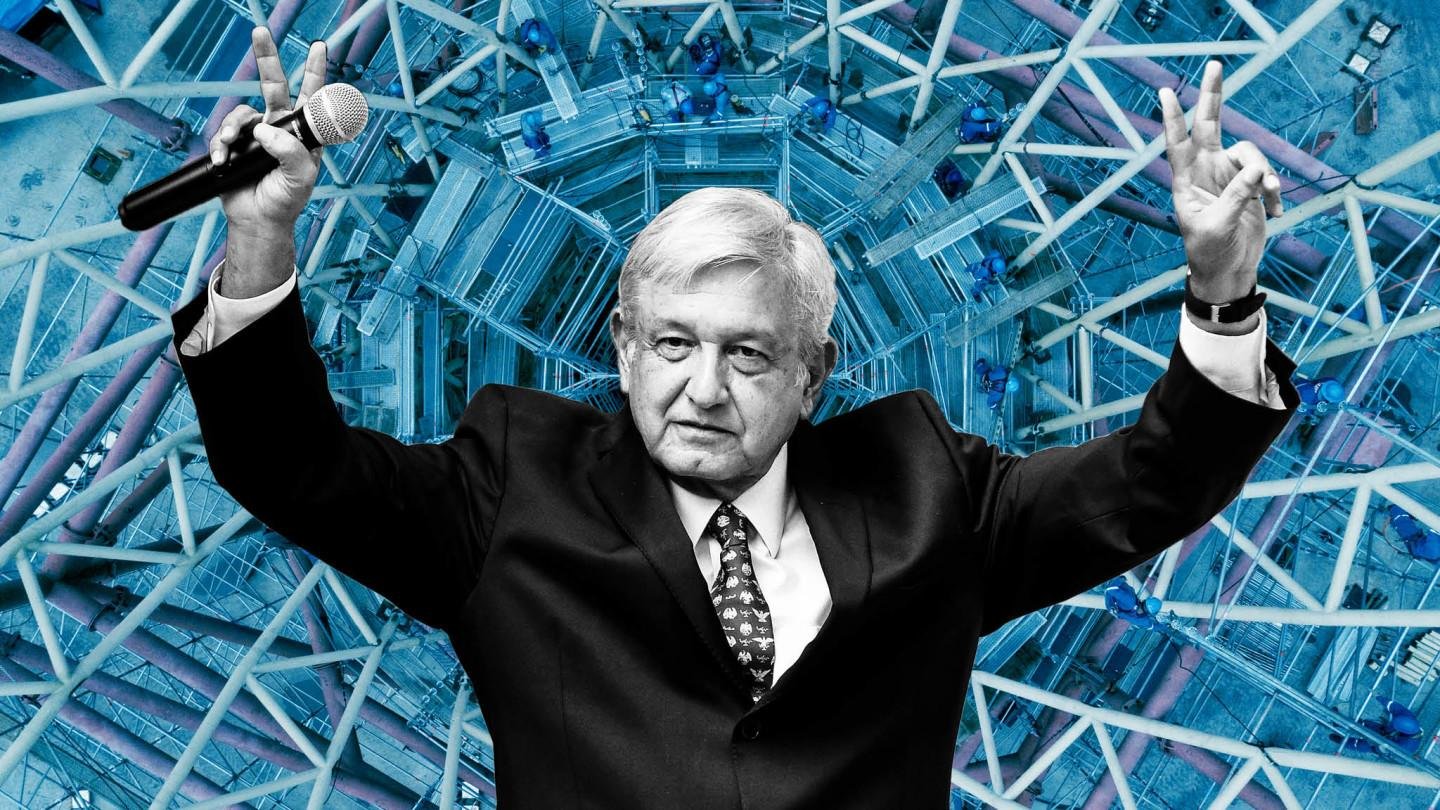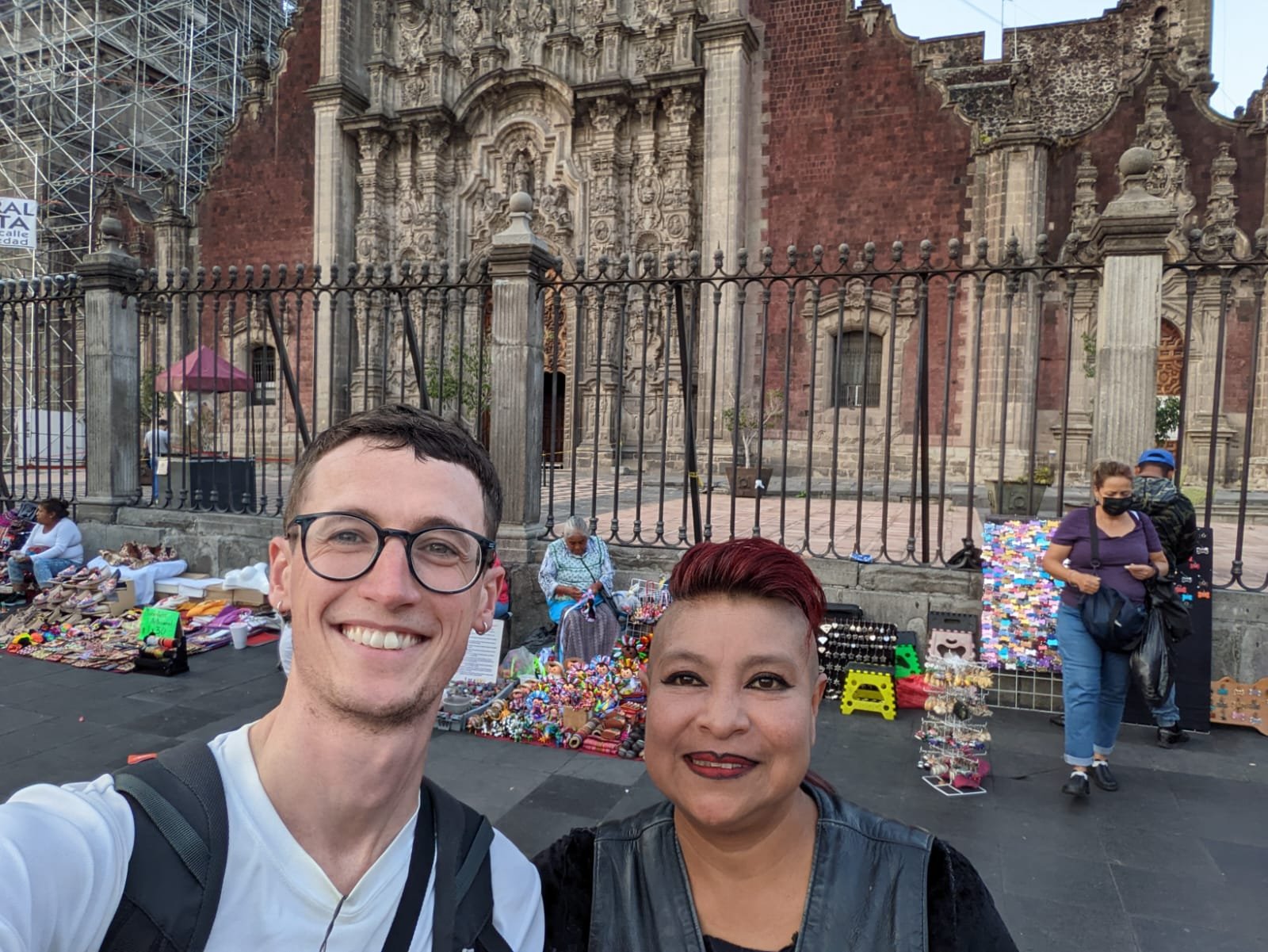‘Chilangos’ on AMLO
A peculiar feature of Mexican politics is the sexenio – the single 6-year term allowed to each president, after which there is no option for re-election even after a term out of office. This creates a particular urgency for leaders to complete projects within the lifespan of their presidential career: no matter their popularity, they cannot afford put off until an unspecified later date. The health of their legacy will largely depend on the successes of those six years. That having been said, the popularity of the president as the sexenio draws to a close may affect his or her (Mexico has not yet had a woman president) ability to have a handpicked successor elected to the presidency.
Andres Manuel López Obrador (known everywhere as AMLO) is a remarkably popular politician. According to Morning Consult’s 7-day rolling approval rating tracker, Mexico’s populist president is the world leader with the second-highest approval rating (behind only Narendra Modi) with 69% of Mexican residents approving of his presidency. Indeed, his approval rating has been consistently high throughout the first four years of his term. At the lowest ebb, when Mexico was in the grip of the Covid-19 pandemic that his government was seen to have dealt with poorly and with over 700 Mexicans dying per day, AMLO still enjoyed approval ratings of 55%.
López Obrador is no stranger to such adulation. When he left his role as Mayor of Mexico City in 2005 in order to run for the presidency the first time, he enjoyed approval ratings of over 80% among chilangos (residents of the capital city), after tightening up the city’s finances and finding the money to offer a pension to the over-65s, support for single mothers and increasing scholarships for the national university. As president, he has developed a loyal base by expanding his pension scheme to cover the whole country and promoting multi-billion-dollar infrastructure projects in the poorer southern states, promising to always put “the poor first.”
AMLO may be popular with his supporters, but he is nothing if not divisive. An old-school leftist, he has made enemies of many progressives by doubling-down on fossil-fuel extraction and trying (unsuccessfully) to pull Mexico back from the Paris climate agreement, while he has claimed to have no need for the concept of patriarchy because he is “respectful of women, of all human beings.” Indeed, he frequently dismisses environmental and feminists issues as “politicking” designed to stop him from transforming Mexico.
A defining feature of his relationship with the Mexican people has been the mañanera: a daily press conference, beginning at 6am and often continuing for over 2 hours, in which AMLO trumpets government policy, discusses events of the day, rails against his opponents – including those in the judiciary and the media, commiserates with the victims of violence, and, amazingly, calls for the people to march on the capital in support of him and his policies.
Unscripted speeches, in which he pauses for several seconds in the middle of a sentence or reveals an astounding lack of scientific understanding, have been derided by Mexicans and foreign journalists alike, and have inspired the launching of a thousand memes. Nevertheless his supporters, often described by those on the right as amlovers or chairos (with origins in a colloquial term for masturbation, this is a very Mexican alternative to ‘woke lefties’), appreciate having an insight into the business of government and trust a man who gets up early and communicates directly.
AMLO has called on Mexicans to march on the capital next weekend (27.11.22) in support of his government.
AMLO came to power with ambitious plans for “national regeneration,” including but not limited to huge infrastructure projects, expanding access to public health services and anti-corruption measures. UK media coverage of his presidency has tended to focus on the shallower aspects of AMLO’s policy agenda (his plan to decommission the presidential jet or turning the presidential residence in Mexico City’s Chapultepec Park into a public museum, for example). Four years into his government would Mexicans still be impressed by such populist gestures or would they judge the man on the success of his more substantive projects? Would they still be angry about Mexico’s disastrous response to Covid-19, or would they offer the global pandemic as mitigation for the slow pace of change?
Rather than speculate any more about the reasons for AMLO’s incredible popularity or the disgust he may inspire in many others, I decided to go out on the streets of Mexico City to ask the locals what they think about their president. This was never going to give me a representative sample of citizens and it is worth noting the people I spoke to were primarily the working people you might expect to be in favour of many of the populist, redistributive policies AMLO has pursued. Rather than try to steer the conversation, I simply asked people what they thought of their president and then encouraged them to expand on their answers.
***
My taxi driver, Miguel, is a neat man with slicked back hair and dimpled cheeks. When I mention that I want to know more about Mexican politics, he mumbles about politicians being a bad lot. However, when I mention AMLO he immediately becomes excited, and begins to praise AMLO at length. He is particularly happy with the way AMLO has closed tax loopholes and ended tax breaks for some corporations while using his presidential prerogative to push through the national pension scheme.
“This president understands what it is like to be a human being. He is of the left, but he is just to all people whether rich or poor. He treats everyone the same.”
"He has given a pension to every person of the tercer edad (over-65s), whether rich or poor, so that old people don't end up wandering the streets begging for money after having worked their whole lives. No president has ever done this before. The other presidents only robbed the poor. He has given us a pension to look forward to when we can no longer work. And he has brought this about by presidential decree meaning nobody can take it away. It is decreed so it is forever.”
“The government were taking money from the people, but never from the companies. How is that fair? This government is finally making the big companies like Coca-cola pay their taxes.”
He tells me that before AMLO came to power Oxxo (an ubiquitous chain convenience store owned by Mexican multinational FEMSA), never paid for their electricity. “I paid my bills throughout Covid even though I had no work. If I am 50 pesos short they will cut off my lights, but Oxxo wasn't even paying for their light. Now they all are starting to pay their taxes.”
Me, Fabi and an excellent Dutchman on the crater rim of Volcán Tetlalmanche
Whilst on a hike up one of the city’s extinct volcanoes, another walker, Fabi, offers me half of her orange. When I gratefully accept, she pulls more and more snacks from her many pockets (sugared nuts, tamarind sweets and pickled cassava) and insists I try all of them and give my opinion on each one. Fabi works for local government in the borough of Iztapalapa, in the east of Mexico City. She prefers not to talk about the president as a person. I wonder if this is because she disapproves of personalist politics or cannot countenance speaking badly of AMLO for some reason.
“I am interested in what needs to change.”
“The current government is giving too much support to ninis”(which, she explains, means people who are not in employment or education – “Ni trabajan, ni estudian”). “These people don’t try hard and they don’t have enough ambition.”
Instead, the government should be incentivising young people to get into education by offering more generous support to students. Her children are both at university and they are struggling to make ends meet. Meanwhile, she believes that people who are “lazy” are being given money by the government.
Cristina has seen the Rolling Stones live (twice) in Mexico City
Cristina, who sells newspapers in Mexico City’s main plaza, identifies strongly as left wing but is also dissatisfied with the government. She approves of increased support for ninis, the elderly, the marginalised and students, but thinks it hasn’t gone far enough. She is worried that inflation is cancelling out any good work the government might be doing to redistribute wealth in society.
“AMLO is a good person, but he has made the wrong choices with his cabinet. He could have made more radical changes if he had been more independent of his advisors.”
When I ask what this would have looked like, she says that it is “the difference between survival and dignity. Mexicans are used to living from day-to-day, or less, so they don’t know what dignity looks like. The working people are not used to generosity, so they are quiet, but life is getting harder not easier. I believe there is enough money in the world and in Mexico to feed everyone, so why are people going hungry?”
She estimates that AMLO has raised the minimum wage by about 70%, “but the price of corn flour has gone from 9 pesos per kilogram to 20 or 21 pesos, so how does that help?”
Francisco thanks god he is healthy and working
During a hair-raising uber ride, Francisco tells me that chilangos still love AMLO because of his successes as mayor of the capital. He believes AMLO has been unlucky that the pandemic delayed many of the policies he had planned, but that nevertheless the economy is rebounding quickly. As with most people I spoke to, he favourably compares AMLO with his predecessors. While he bemoans the cost of petrol, he thinks that the government cannot be blamed for the high rate of Covid deaths and inflation in Mexico since these are global problems that they could not have predicted.
“The previous presidents robbed the people. AMLO wants to help people. The people love him. If there was another election right now, I would vote for AMLO again.”
Since AMLO cannot run again, would he vote for whoever AMLO backs? “Probably, yes.”
“What I like about him is that he doesn’t waste money on hairdressers, cars and planes like the other presidents. He has always been more modest.”
Me with entrpreneurs Alejandro and Quetzl
Alejandro and Quetzl, selling their home-made soap at the La Búfalo tianguis (street market), have a dimmer view of their president. In contrast to most people I spoke to, they view him as just another power-hungry politician. They are exactly the kind of jaded people, fed-up of politics, that a populist leader would hope to motivate, yet, they represent those in society who cannot tolerate the eccentricity of their leader, who feel their intelligence is being offended by his populist showboating.
Alejandro guffaws, “He is a crazy person. He actually told the Mexican people that wearing an image of the virgin would protect them against Covid-19. So people wore stickers of the virgin instead of masks.”
“How many times did he try to become president?” he asks Quetzl. They can’t remember, but it is clear that his repeated attempts to assume the office are evidence that he is not to be trusted. “People like him because he says different things, but he is still a politician.” They would never attend a march for or against the government because “all you do is waste your time.”
Alejandro doesn’t approve of AMLO’s signature infrastructure project, Tren Maya, because “in the end it’s the people who end up paying for it through higher taxes.” He also blames AMLO for the current inflation of the Mexican peso.
Quetzl is only slightly less damning: “He is better than the previous president [Enrique Peña Nieto], but the bar was set very low. It’s like measuring yourself against a child.”





